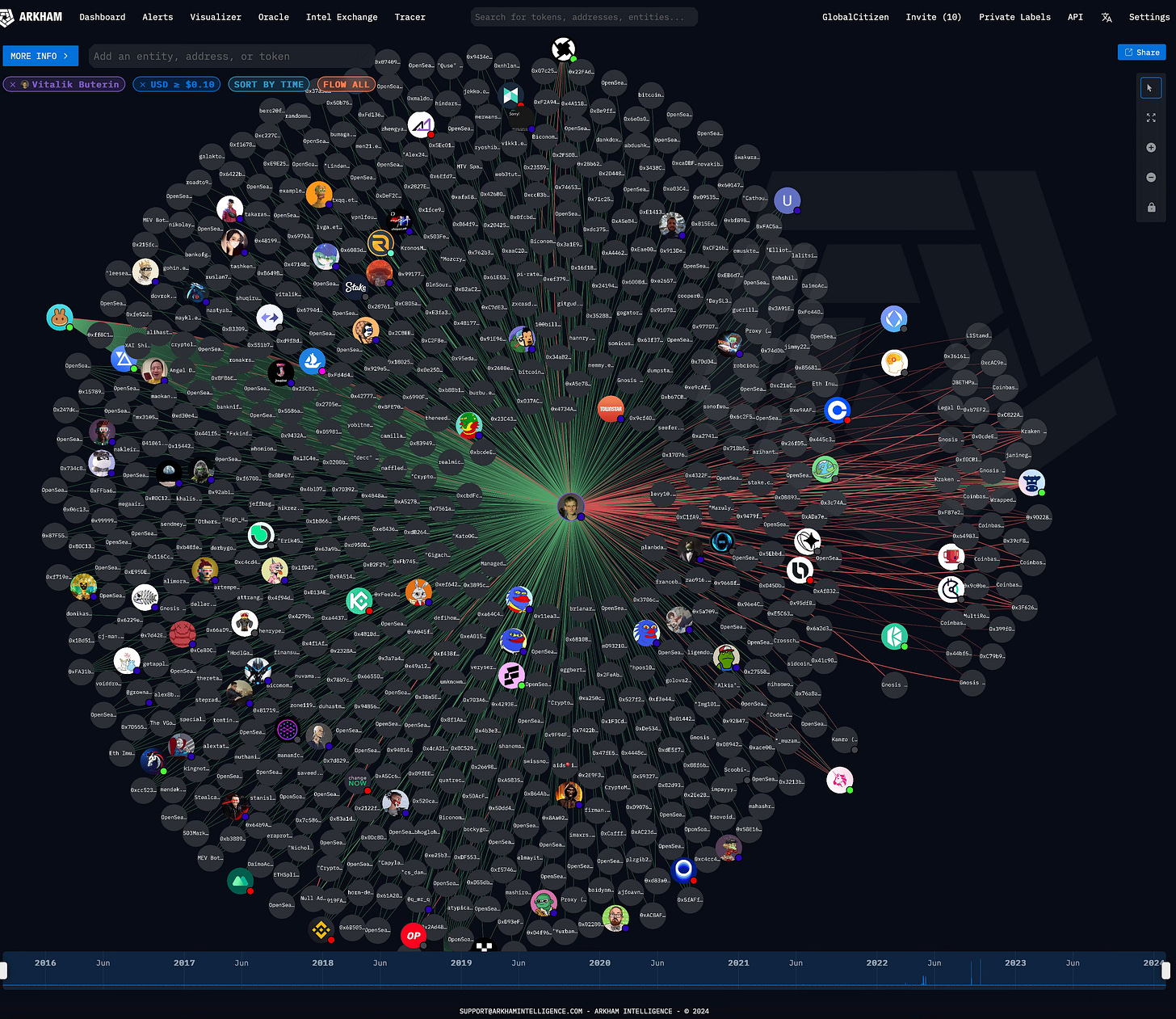We Need More Transparency
This week I'm looking at the topic of transparency in Web3 and beyond.
This is MadeMeThink – A Weekly Publication with Curated Content for Visionaries, Innovators & Critical Thinkers Exploring the World of Tomorrow. Written by Prof. Thomas Metzler, Ph.D.
This MadeMeThink last week…
Bitcoin is once again attracting public attention these days as the media and social networks discuss the upcoming halving event and its impact. The Bitcoin Halving is a pre-programmed reduction in the rewards miners receive for processing transactions, an event that occurs approximately every four years. This mechanism was designed to control the supply of Bitcoin, introduce scarcity into the system and create a deflationary effect. The Bitcoin Halving is expected to take place on April 19, 2024 (see halving countdown).
In this article, however, I don't want to speculate on the Bitcoin price, but rather talk about a few more fundamental and (IMHO more) important aspects of blockchain technology, which goes far beyond the sphere of crypto currencies and promises to redefine interactions and trust in the digital age.
We need more Transparency
When you dig deep into a specific area, at some point you usually focus on specific details and cover them. These details are important and fascinating, but this week I was reminded again of the great promises of Web3/ Blockchain-Technology and the fundamental benefits it brings, such as the following:
Permissionless: Enables anyone to participate without the need for authorization, promoting inclusivity and innovation across the network.
Decentralization: Removes the need for a central authority, enhancing system resilience and reducing single points of failure.
Transparency: Ensures all transactions are visible to network participants, fostering trust and accountability.
Security: Advanced cryptographic techniques make blockchain data secure and resistant to tampering and fraud.
Immutability: Blockchain's immutability guarantees the permanence and unalterability of recorded data, ensuring historical integrity.
All of the above are great values. Especially transparency is something that I really appreciate in the Web3 space (even my side hustle WalletFrens.xyz is based on this value). But what exactly does transparency mean? I give you an example. Lately, I’ve been wondering what the Ethereum Foundation's reserves are and whether they are currently liquidating reserves. Using an intelligence platform called Arkham, I looked at the various assets and financial activities of the Ethereum Foundation and got my answers (see screenshot; they hold 1,2 billion in crypto assets, so they shouldn't run out of money anytime soon). This can be verified as every transaction in the blockchain is public.
Then I was interested in what assets the most famous Ethereum co-founder Vitalik Buterin has. This information is also public, available with one click, in real time. And in various analysis options, e.g. which wallets Vitalik has interacted with (see below). And this is not because the Ethereum Foundation or Vitalik have released this information, it is inherent to the system. Each wallet address and its activity can be viewed on the blockchain.
While I was looking at the portfolio and individual transactions of the Ethereum Foundation and Vitalik, I had to pause for a moment. I had to think about how I take this transparency in the web3 space for granted, and how much this transparency is missing in “real life”.
I thought about how the transparency of Web3 would affect critical real-world areas, such as political parties (including top politicians), NGOs, universities, and other organizations utilizing taxpayer money. Wouldn't it be nice to know in real time what money political parties receive from whom or how state organisations use taxpayers' money?
You can play around with tools like Arkham (or Etherscan) yourself, query your own (or your frens) wallet addresses and access nice visualisations. Have fun!
Book me as your keynote speaker: If you found this article insightful and you’re looking for an engaging keynote speaker to elevate your next event, I invite you to discover more about my keynote topics and speaking engagements. If you have any questions, feel free to contact me.
Sharing is caring! If you've enjoyed this read, please spread the word to a friend. Your support is invaluable! Referrals = more readers = more time for me to write articles = better quality of the insights you receive (+ good karma). And I'm sure your friend will appreciate your recommendation too. I certainly appreciate it very much!
Disclaimer: The thoughts published in this publication are my personal opinion and should not be considered as investment advice or a recommendation for any type of action. I am not a financial expert. The startups, organizations or corporates highlighted in this publication have caught my interest. This mention is not an endorsement or recommendation to engage with them. Readers should always do their own research.




